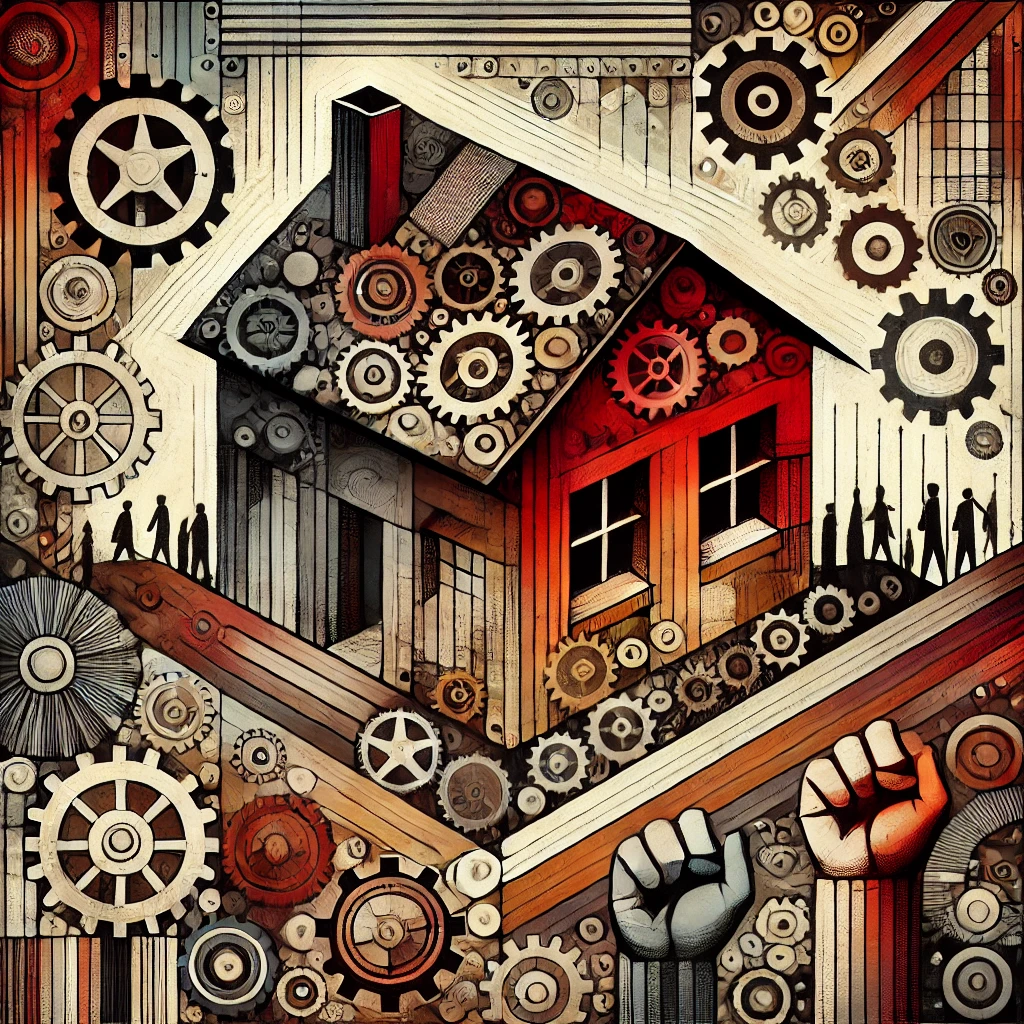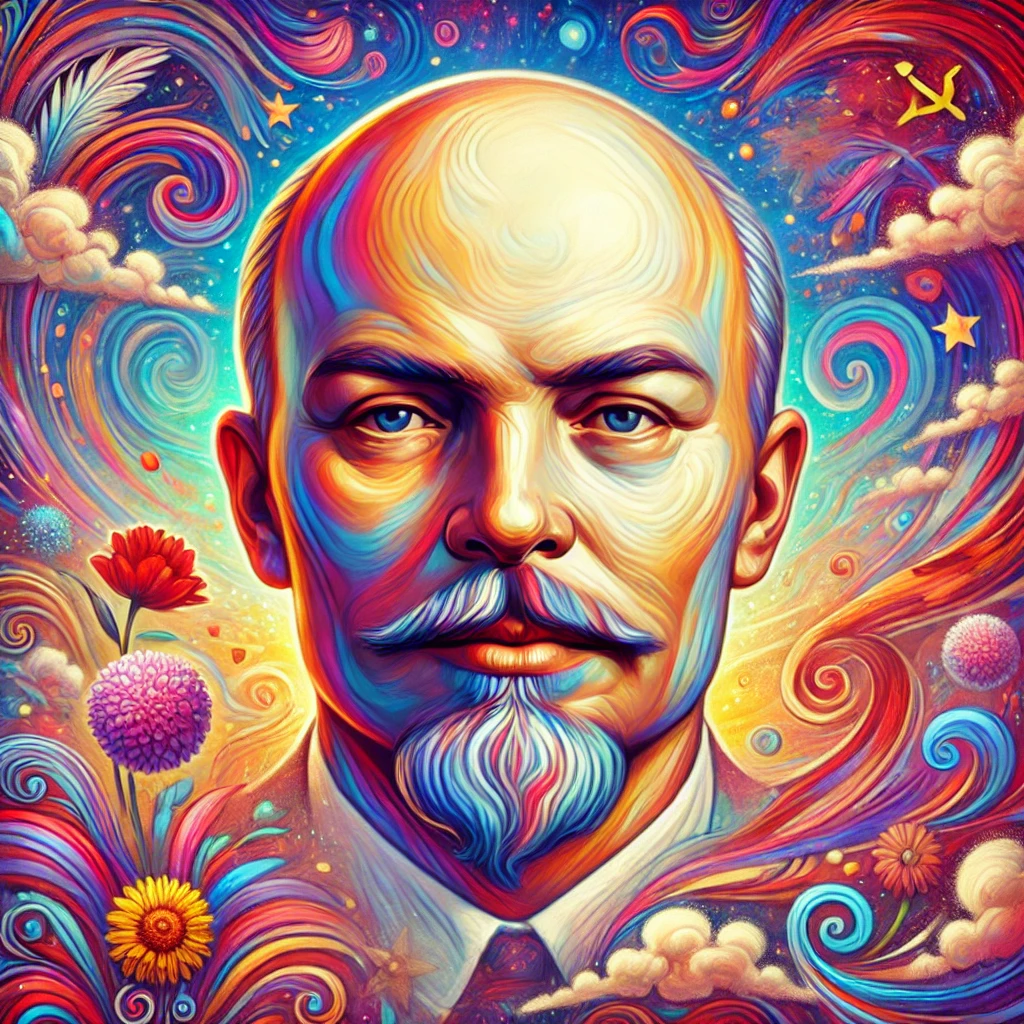Marxism-Leninism

Place of Origin: Europe (primarily Germany and Russia)
Century of Origin: 20th Century CE
Associated Philosophers:
Overview of Marxism-Leninism
Marxism-Leninism is a political and economic philosophy that combines the ideas of Karl Marx and Vladimir Lenin. It focuses on creating a society where wealth and resources are shared equally among all people. Marxism-Leninism argues that capitalism, the system where businesses and wealth are privately owned, leads to inequality because it allows a small group of people to become very rich while the majority, the working class, remain poor. Lenin expanded on Marx’s ideas by advocating for a revolutionary government led by the working class. This government would take control from the wealthy ruling class and create a socialist state, where the government owns all resources and makes sure they are distributed fairly to everyone.
The metaphysics of Marxism-Leninism is based on materialism, which means that the physical world and economic conditions are what shape society and people's lives. Marxism-Leninism teaches that our thoughts, beliefs, and values are shaped by our material conditions—how we live, work, and our access to resources. This philosophy rejects the idea that there is a spiritual or supernatural world that influences human life. Instead, it argues that by changing the way wealth and resources are distributed, we can improve society and create a better life for everyone.
Marxism-Leninism teaches that knowledge is shaped by a person’s social and economic position. It argues that the wealthy ruling class controls what people learn and believe, using this power to keep the working class in a lower position. The philosophy emphasizes the need for the working class to gain a true understanding of their situation through education and revolution. By becoming aware of how the capitalist system keeps them oppressed, the working class can fight for change and equality.
Marxism-Leninism promotes ethics based on fairness, equality, and working together for the common good. It argues that capitalism is unethical because it allows a small number of people to control most of the wealth while the majority of people struggle to survive. The philosophy teaches that it is ethical to support the working class in their fight against the ruling class and to create a socialist society where everyone has access to the resources they need to live well. Ethical behavior in Marxism-Leninism includes promoting equality, fighting against exploitation, and working to build a society where wealth is shared fairly.
Logic plays an important role in Marxism-Leninism, as it is used to analyze the structure of society and understand how capitalism leads to inequality. Marxism-Leninism teaches that capitalism is based on exploitation, where business owners profit by paying workers less than the value of their labor. By using logic to analyze this system, Marxism-Leninism argues that a socialist system, where the government controls resources and wealth is distributed fairly, is the only logical way to create a more equal society.
The aesthetics of Marxism-Leninism focuses on art and culture that reflect the struggles and dignity of the working class. Art in this philosophy is meant to inspire people to fight for equality and to support the ideals of socialism. Marxism-Leninism rejects art that glorifies individual wealth or success. Instead, it encourages art that promotes collective action and shows how ordinary people can come together to create a more just and equal society. Art under Marxism-Leninism is often used to celebrate the achievements of workers and to highlight the importance of solidarity and cooperation.
Marxism-Leninism uses a method of studying history and society through the lens of class struggle. It teaches that history is shaped by the conflicts between the working class and the ruling class, as workers fight against exploitation. The philosophy encourages analyzing economic systems to understand how power and wealth are distributed and to reveal the ways in which capitalism keeps people in poverty. This method aims to show that revolution is necessary to overthrow the ruling class and to create a socialist society where wealth and resources are shared equally.
Marxism-Leninism views humans as shaped by their material conditions, meaning that people’s thoughts, beliefs, and actions are influenced by their economic and social environment. It teaches that under capitalism, people are forced to compete for resources, which creates division and inequality. Marxism-Leninism argues that in a socialist society, where resources are shared equally, people would be able to live in harmony and cooperation, focusing on the common good rather than competing for personal gain.
Marxism-Leninism promotes the idea of a revolutionary government led by the working class, which would take power from the wealthy ruling class and create a socialist state. This government would control all resources, businesses, and land, ensuring that wealth is distributed fairly among the people. Marxism-Leninism also supports the idea of a 'dictatorship of the proletariat,' where the working class holds political power and works to dismantle capitalist systems, creating a society without classes where everyone is equal.
Marxism-Leninism developed from the ideas of Karl Marx, who believed that capitalism was an unfair system that exploited workers. Lenin expanded on Marx’s ideas, arguing that a revolutionary government was needed to overthrow the ruling class and create a socialist state. This philosophy became the foundation of the Soviet Union after the Russian Revolution in 1917, and it has influenced socialist movements around the world. Marxism-Leninism continues to shape political debates about equality, wealth, and power, particularly in countries with strong socialist traditions.
Key themes in Marxism-Leninism include the struggle between the working class and the ruling class, the idea that capitalism creates inequality, and the belief that a socialist revolution is necessary to create a fairer society. It teaches that by replacing capitalism with socialism, where the government controls all resources, society can become more equal, and wealth can be shared fairly among everyone. Other important themes include the role of the working class in leading the revolution and the idea that history is shaped by class struggles and conflicts.
Karl Marx is the foundational philosopher of Marxism-Leninism, and his ideas about class struggle and the need for a socialist revolution are central to the philosophy. Vladimir Lenin built on Marx’s ideas, arguing for a revolutionary government led by the working class. Other influential figures in Marxism-Leninism include Joseph Stalin, who implemented these ideas in the Soviet Union, and Mao Zedong, who adapted Marxism-Leninism to lead the Communist Revolution in China.




